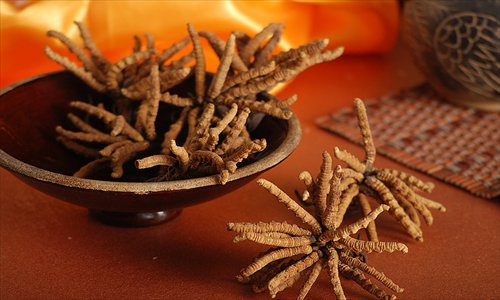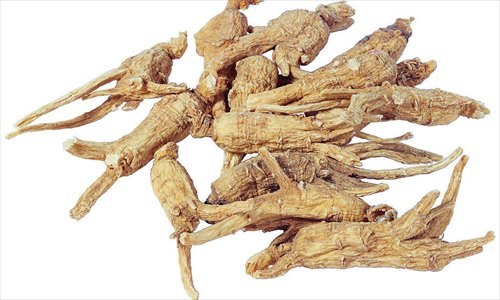Cold comforts
Editor's note
The ancient Chinese created an agricultural solar system - still in use today - that is based upon their observation of crops, climate, astrology, and the study of animal and plant life cycles. The system guided farmers as to when to sow seeds and when to harvest them, and this system has now been in place for more than 2,000 years.
Today, with advances in science and technology, agriculture depends less on this ancient wisdom. But this seasonal calendar still operates as a reference guide for gourmands to seek out the best times for seasonal delicacies and for health experts to plan nutritious diets.
In a single year, the system features 24 "solar terms," each lasting one day and occurring every two weeks. Each has its own name and characteristics. The Global Times is presenting a weekly series examining which foods and delicacies are best enjoyed during these periods, as well as tips on preserving general health.

In the Chinese solar calendar, the "day of the slight cold" or xiaohan in Chinese, took place on January 5 this year.
Xiaohan, usually falls between January 5 and 7, and is the 23rd solar period.
This year's xiaohan occurred at the end of erjiu, the second jiu. In winter, nine consecutive nine-day periods after the Winter Solstice are each referred to as jiu, and when the ninth jiu is over, winter is said to have ended. Among the nine jiu, the temperatures during sanjiu (third jiu) and sijiu (fourth jiu) are usually the lowest.
Walking on ice
Many old sayings describe how cold xiaohan can be, such as "whether it is xiaohan (slight cold) or dahan (great cold) the end result is ice-cold," "It's often the case that xiaohan is even colder than dahan and "People walk on ice during sanjiu."
There are also a number of proverbs relating the weather during xiaohan to future climate conditions: "If it rains during xiaohan, it will be cold in the coming spring" and "the colder xiaohan is, the warmer the spring will be."
Traditional Chinese Medicine (TCM) believes that "coldness" or han dominates this period. TCM doctors say that this "coldness" which represents yin, can do harm to a person's yang. The basic rule for keeping in good health during winter is to protect your yin. "Perhaps the most important way to do this is to nourish the kidneys," said Cai Jun, director of the department of clinical nutrition at Longhua Hospital, one of the oldest TCM hospitals in the city.
"People's qi (life force) and blood are weak during winter. So, proper food and tonics are helpful to revitalize the body and to avoid sickness in the coming year," said Cai.
He added that people who sweat easily or get very tired after exercising should eat dishes containing red ginseng and red jujube, as well as the Chinese herbs Atractylodes Rhizome (baishu) and Extractum Astragali (beiqi). People who often feel dizzy or suffer from palpitations or insomnia should eat Angelica (danggui), Rehmannia Glutinosa (dihuang) and Donkey-hide gelatin (ejiao). Cornu Cervi Pantotrichum (lurong) and Cistanche Deserticola (roucongrong) are suitable for people whose toes and fingers get cold easily while Cordyceps Sinensis (dongchongxiacao), Dendrobium (shihu) and Radix Polygonati Officinalis (yuzhu) are ideal foods for those who sweat when they sleep.

Sufficient exercise
Moderate exercise is also encouraged around the time of xiaohan. "People should avoid doing exercise before sunrise, that is at around 3 am or 4 am when the temperatures are still low," Cai said. "Low temperatures slow down the blood flow and can cause strain to the heart and blood vessels. This means that the muscles can't extend and that the ligaments and joints can be easily injured. Sufficient warming-up exercises are also necessary. Anyone suffering from cardiovascular disease, stomach or intestinal conditions, or arthritis should refrain from exercising outdoors too much," he added.
Doctors also suggest relying less on air-conditioners. "People who stay in a room warmed up by an air-conditioner are more likely to fall prey to respiratory diseases due to the dry air," Xu Liang, a doctor from the Shanghai Traditional Chinese Medicine Hospital told the Global Times.
"A big gap between indoor and outdoor temperatures can also lead to a cold."
Xu said that a high indoors temperature from an air conditioner at night can also cause poor sleep.
Foods that are considered to be "warm" in nature are ideal to consume during xiaohan such as red dates, lotus seeds, longan, jack beans and leek.
The Global Times has found an ideal recipe to nourish the kidney during this period.
Cistanche Deserticola porridge
Ingredients: 15 gram Cistanche Deserticola, 100 gram mutton, 100 gram rice, two roots green onion and three slices ginger
Method:
Wash the Cistanche Deserticola and put it into a casserole dish with water;
Boil the casserole and then simmer for 20 minutes;
Remove the sediments and throw them away
Put in the mutton and add fresh water;
Cook the dish on a low heat until the mutton is tender;
Put in the rice and add more water; continue cooking until the porridge thickens
Add in the green onion and ginger, and continue cooking for several minutes longer